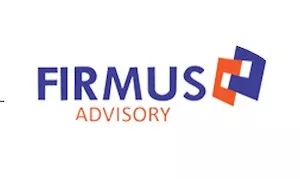Introduction - Mining Licence in Ghana
Every company seeking to enter the mining industry in Ghana requires a mining licence. The mining industry in Ghana accounts for 5% of the country's GDP and minerals make up 37% of total exports of which gold contributes over 90% of the total mineral exports.
Ghana is one of the leading producers of gold in Africa and the seventh leading producer in the world. Some major operating mines in Ghana are Anglogold Ashanti (Ghana) Ltd, Anglogold Ashanti (Iduapriem) Ltd, Goldfields Ghana Ltd, Newmont Ghana Gold Ltd, Chirano Gold Mine among others.
Ghana has 20 large-scale mining companies producing gold, diamonds, bauxite, and manganese, and, there are also over 300 registered small-scale mining groups and 90 mine support service companies.
What is the key legislation regulating mining in Ghana?
The key legislation regulating mining in Ghana is the 1992 Constitution of Ghana, the Minerals and Mining Act, 2006 (Act 703), as amended by the Minerals and Mining (Amendment) Act, 2015 (Act 900), the Minerals and Mining (Amendment) Act, 2019 (Act 995), and the Minerals Commission Act, 1993 (Act 450). It should be noted that there are other subsidiary legislations that regulate different aspects of the mining sector.
Who is responsible for issuing a mining licence in Ghana?
The agency that has the mandate and is responsible for issuing a mining licence is the Minerals Commission, Ghana (www.mincom.gov.gh). In addition to granting of licence, the commission undertakes the coordination and implementation of policies related to mining in Ghana.
What are the types of mining licences in Ghana?
There are various types of Mineral Rights and Licences available in Ghana. They include;
Reconnaissance Licence (RL)
Regional exploration and does not include drilling and excavation.
Prospecting Licence (PL):
Search for minerals and evaluation.
Mining Lease (ML):
Extraction of minerals.
Restricted Mining Lease (RML):
Building and industrial materials.
Small Scale Mining Licence:
Extraction of minerals. This type is reserved for Ghanaians only.
Each mineral right and licence has a distinct defined area and duration but are all renewable.
Obtaining gold mining concession
Entities who want to venture into the mining business need a site where they can mine gold. The minerals commission has a database of possible mining sites that individuals and entities can legally acquire and mine.
Private individuals are encouraged to use their own trusted resources and technology to ensure that the sites that they want to acquire have the required amount of minerals that they want to mine.
What documents are required to apply for a mining licence in Ghana?
- Completed application form. The form is available for download on the Minerals Commission website.
- Certified copies of documents of incorporation that show the applicant is a body incorporated under the Companies Act, 2019 (Act 992) or the Incorporated Private Partnership Act, 1962 (Act 152) or under any other enactment in force.
- Certified copies of the company's regulations for the companies in the old system and Constitution for companies in the new system. Also, add details of shareholding and directors.
- Specify the size, the number of cadastral blocks, and the cadastral coordinates delineating the area being applied for (site plan).
- Particulars of the qualifications and experience of the technical team in charge of the reconnaissance operations.
- Work program describing the scope and type of the work to be conducted, including the expenditure on reconnaissance.
- Particulars of the financial resources available to the applicant for the proposal reconnaissance operations.
- Provide evidence of payment of the applicable fees.
- Cadastral search report
- In the case of conversion from reconnaissance to prospecting license, a certified copy of the reconnaissance license is required.
In case of conversion to mining lease, a certified copy of reconnaissance and prospecting licence are required.
To view the article in full click here
The content of this article is intended to provide a general guide to the subject matter. Specialist advice should be sought about your specific circumstances.



